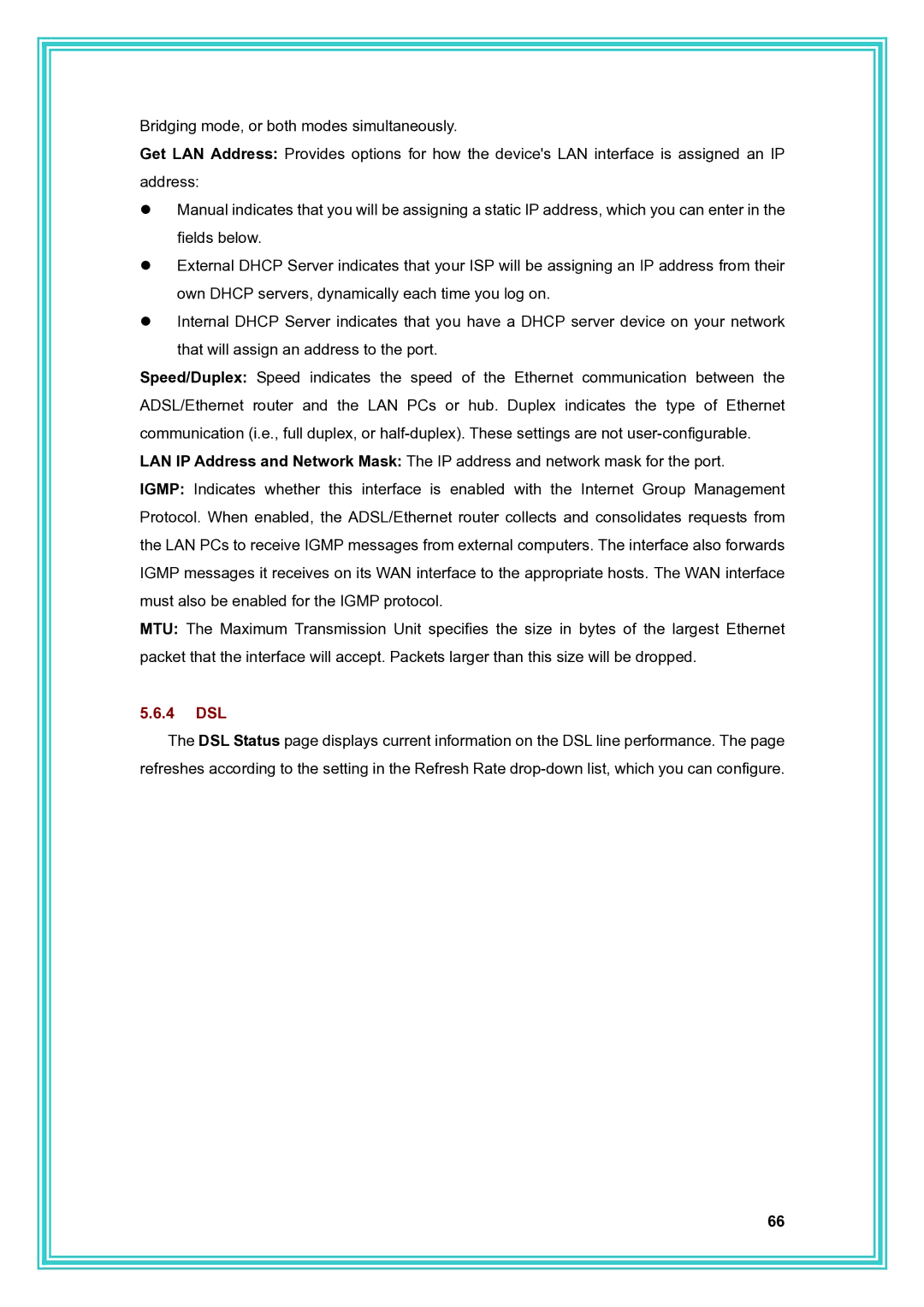
Bridging mode, or both modes simultaneously.
Get LAN Address: Provides options for how the device's LAN interface is assigned an IP address:
zManual indicates that you will be assigning a static IP address, which you can enter in the fields below.
zExternal DHCP Server indicates that your ISP will be assigning an IP address from their own DHCP servers, dynamically each time you log on.
zInternal DHCP Server indicates that you have a DHCP server device on your network that will assign an address to the port.
Speed/Duplex: Speed indicates the speed of the Ethernet communication between the ADSL/Ethernet router and the LAN PCs or hub. Duplex indicates the type of Ethernet communication (i.e., full duplex, or
LAN IP Address and Network Mask: The IP address and network mask for the port.
IGMP: Indicates whether this interface is enabled with the Internet Group Management Protocol. When enabled, the ADSL/Ethernet router collects and consolidates requests from the LAN PCs to receive IGMP messages from external computers. The interface also forwards IGMP messages it receives on its WAN interface to the appropriate hosts. The WAN interface must also be enabled for the IGMP protocol.
MTU: The Maximum Transmission Unit specifies the size in bytes of the largest Ethernet packet that the interface will accept. Packets larger than this size will be dropped.
5.6.4DSL
The DSL Status page displays current information on the DSL line performance. The page refreshes according to the setting in the Refresh Rate
66
